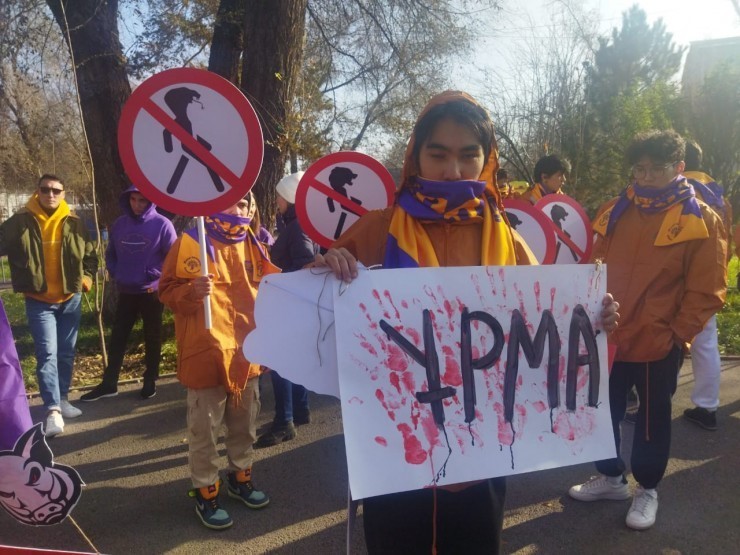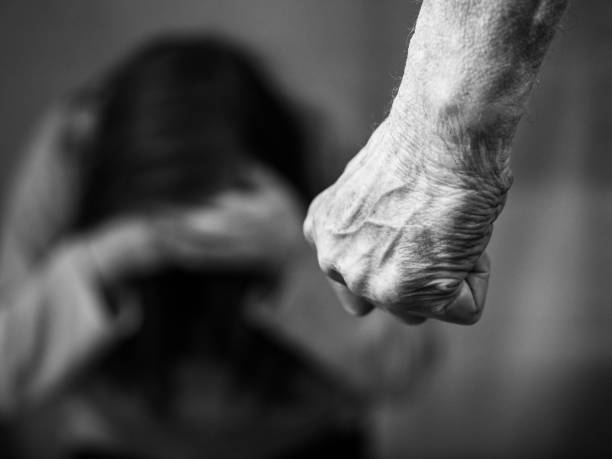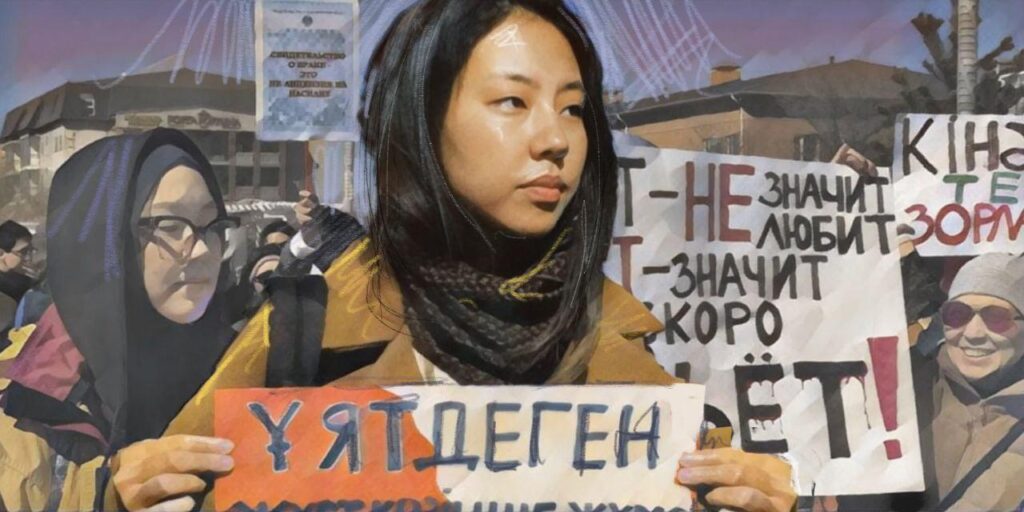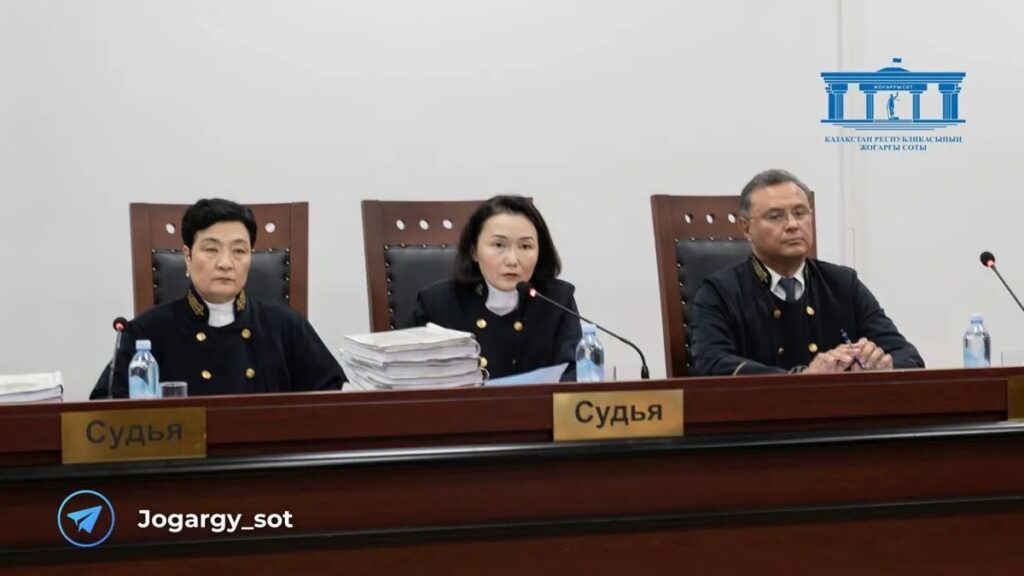A very public tragedy in Kazakhstan put on display domestic violence at its worst. A quarrel in a restaurant in Astana on the evening of November 8th is reported to have resulted in the death of Saltanat Nukenova, the 31-year-old wife of Kuandyk Bishimbayev. Bishimbayev, who served as Minister of National Economy under former President Nazarbayev, was detained on the same day for suspected murder and remains under arrest awaiting trial. On November 11th, Saltanat was buried in Pavlodar.
This appalling incident highlighted the urgent need for stronger protections against domestic violence. An authorized rally was held in Almaty in late November. Around 200 participants came out onto the square behind the Sary Arka cinema, holding posters and chanting slogans against domestic violence. The event was organized by a public movement called Zhana Adamdar and the attendees mostly included young people and students from the movement. Relatives of Saltanat Nukenova also took part.
The participants wanted to raise awareness about fighting any manifestation of violence against women and children. Most of the attendees were dressed in the same style, and many of them had scarves with the inscription “Say no to the animal world,” which was also the title of the rally. Speakers at the event detailed the most resonant cases of violence in recent times while the organizers of the rally held a small flash mob and arranged an installation with mannequins in cages with animal masks on them. A minute of silence was observed in honour those who died as a result of violence.
Progress in protecting women
What proceeded this public tragedy hopefully presents a silver lining. A month later, on December 8, Kazakhstan’s current President Kassym-Jomart Tokayev signed a Decree to strengthen human rights with concrete steps towards preventing violence and promoting gender equality.
The Decree instructs Kazakhstan’s government to take systematic measures to promote equal rights and opportunities in all spheres of society, as well as to overcome all forms and manifestations of gender discrimination. The decree also encompasses legislation to deter domestic violence and promotes equal rights and safety for both men and women in the Republic of Kazakhstan, as endorsed by UN Security Council resolution 13251.
It further involves legislative measures to tighten criminal liability in cases of domestic violence, which have now been implemented. These measures aim to hold perpetrators accountable and ensure that victims can get justice. Additionally, offenders of domestic violence may be required to undergo comprehensive psychological correction as part of their rehabilitation process. The Decree also asks for creating specialized units within the Ministry of Internal Affairs staffed with female officers, who can enhance the effectiveness of combating domestic violence.
While the timing of the Decree coincided with the aftermath of Saltanat’s death, there are signs that these steps may have already been in the works. President Tokayev had voiced concerns about domestic violence before the current headlines emerged. At a meeting in the Ministry of Internal Affairs in June 2023, for example, he had affirmed that “comprehensive preventive work is necessary” where “the main role is assigned to neighbourhood police inspectors”. He had further observed that “crimes committed on the basis of family and domestic conflicts can be avoided if timely measures are taken.”
The inclusion of domestic violence in the President’s reform agenda has been acknowledged by Human Rights Watch (HRW), and Tokayev appears to have included action steps recommended by HRW — such as directing the relevant authorities to increase penalties for offenders of domestic violence against women. Local experts expect that the legal code will be changed to include domestic violence as a specific class of criminal offence in the near future, thus making abusers more accountable.
A cultural change in progress
Beyond the legal, economic and political reforms, Kazakhstan is also witnessing a significant societal shift in addressing domestic violence. A notable example is the docudrama series “Zhalgyz Emessin” (translated as “you are not alone”), produced in collaboration with UN Women Kazakhstan and supported by the European Union and the government of Kazakhstan. This series features real-life stories of domestic violence survivors, and aims to raise awareness, challenge gender stereotypes, and empower survivors. The representative of UN Women Kazakhstan, Maria Dotsenko, has publicly commented on how the series has succeeded in educating a broad audience on responding to violence.
The favourable national response to the film “Baqyt” (Happiness) about domestic violence likewise indicates a changing cultural discourse in the country, confirming a societal shift towards openly acknowledging and addressing the problem of domestic violence.
The trajectory
Kazakhstan is poised to continue on a positive trajectory towards ending domestic violence and gender discrimination, which has been accelerated by the heart-breaking murder of a young woman. At the state level, a legal culture that fosters zero tolerance towards all forms of violence is beginning to emerge. Encouraging signs from the government include recent reform efforts and pledges in this direction. The ultimate evidence of progress, however, will be a significant decrease in instances of domestic violence.








